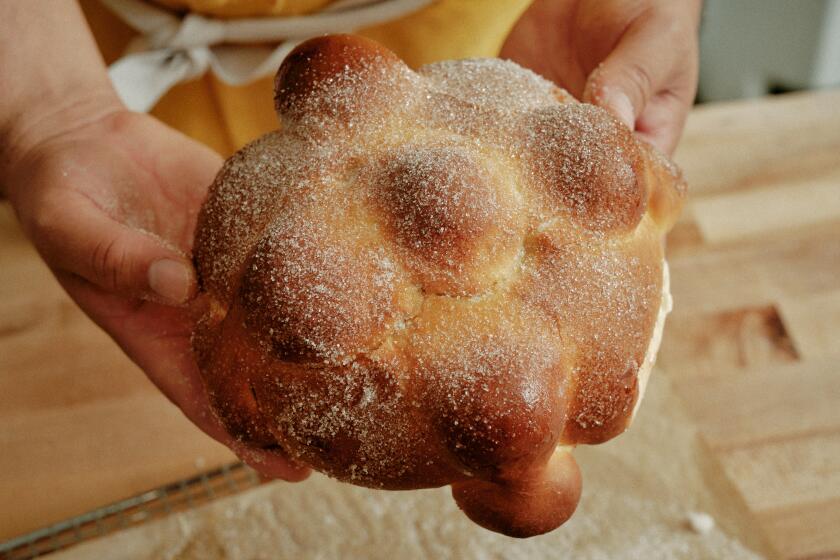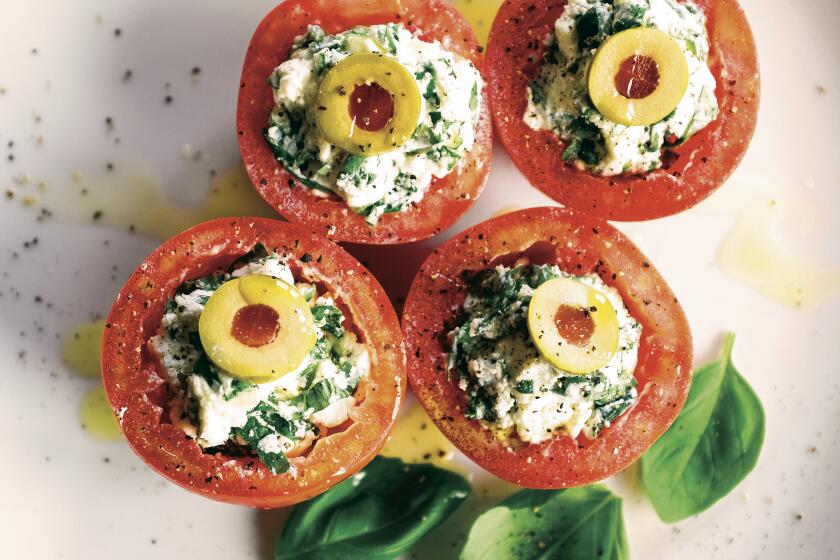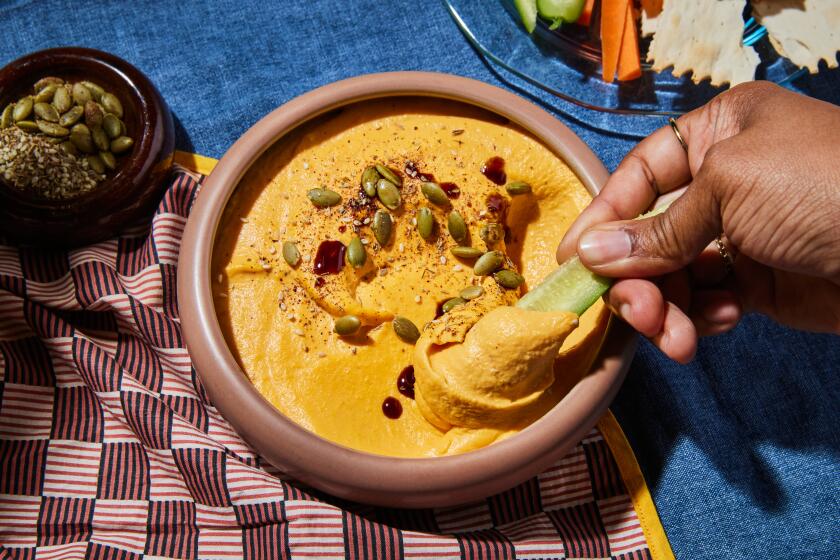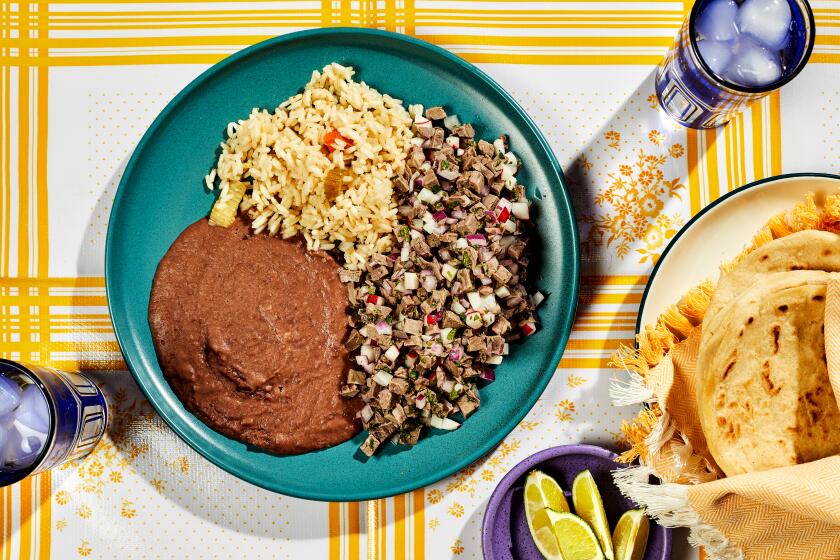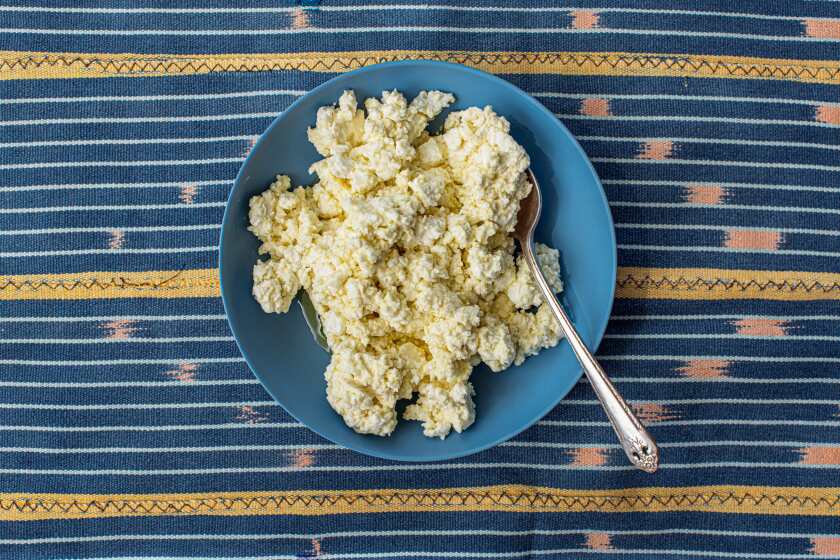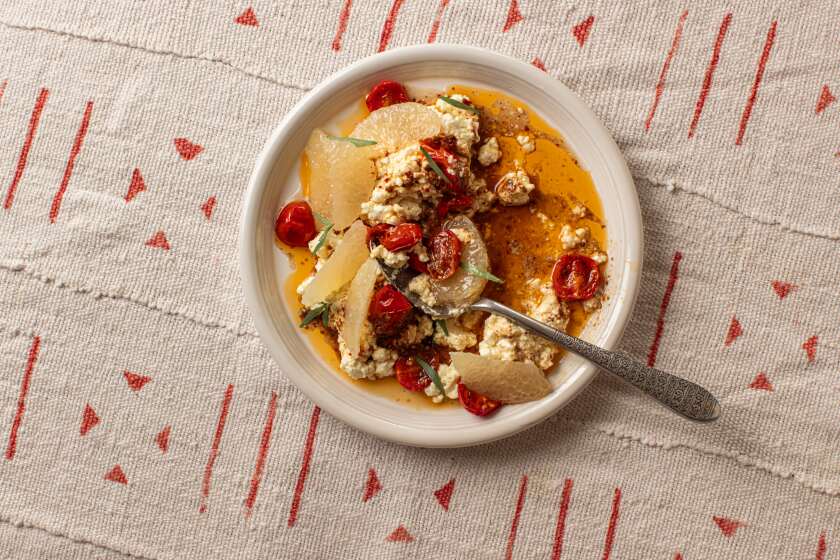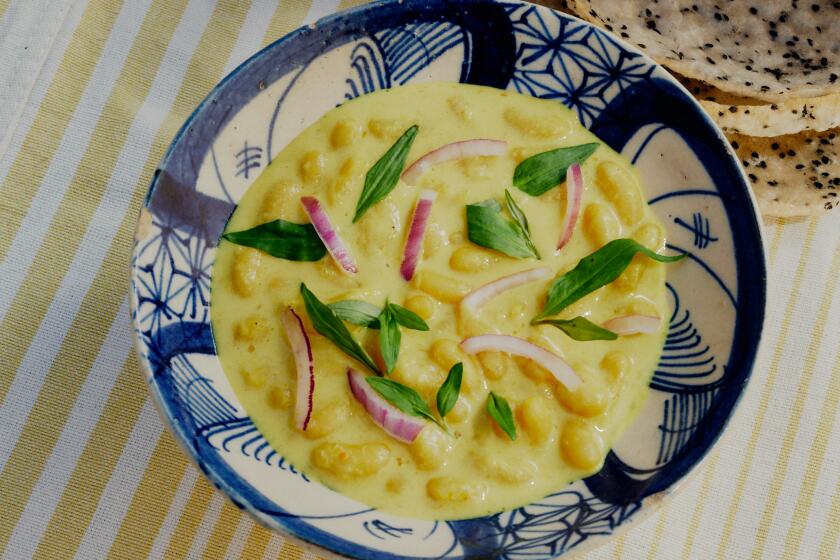Yukon Gold potato blini
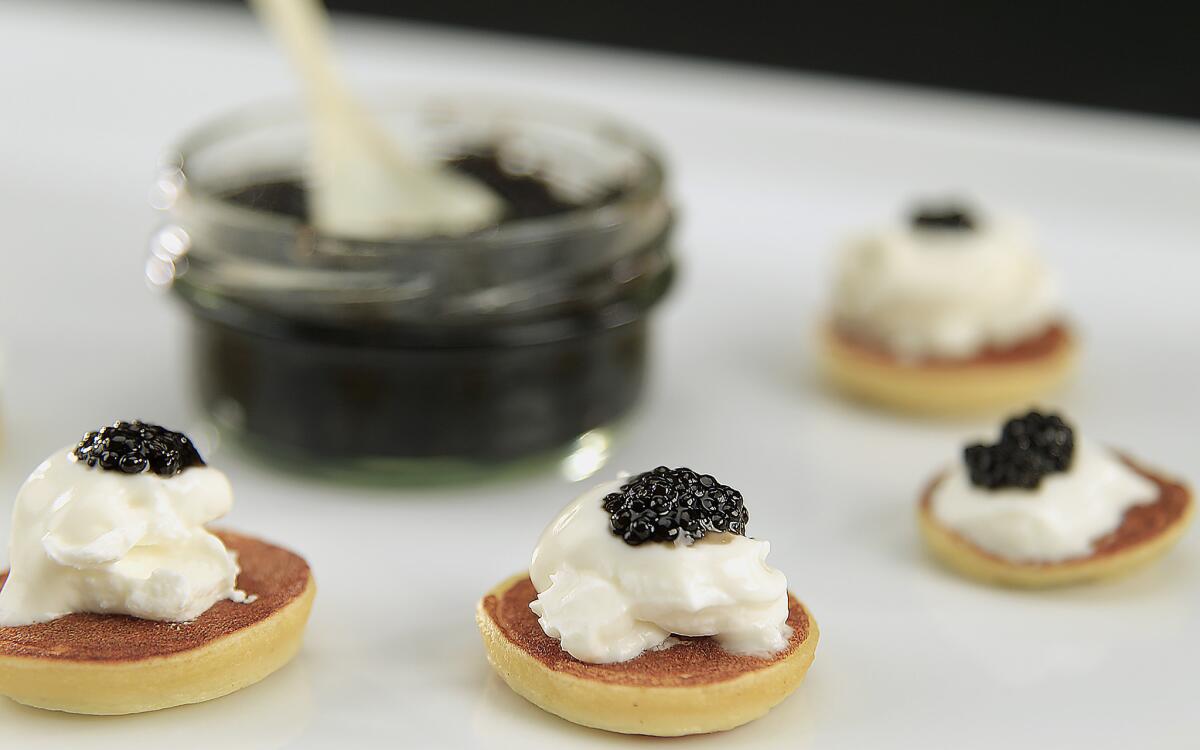
If you know how to make a regular buttermilk pancake, you’ll have no trouble with blini. You just make them smaller — the size of silver dollar pancakes, if you like. And because they’re so fragile, it helps to have a spatula with a thin lip in order to turn them over without breaking when the time comes.
You can make them on a griddle (Keller likes to use an electric one), in special cast-iron blini pans with shallow depressions or in a regular cast-iron or nonstick skillet. Put two pans on the fire if you’re making them for a crowd. And have a basket lined with a cloth napkin at the ready to keep them warm.
No need to wait until you win the lottery, and can bring home a big tin of top-of-the-line caviar. Salmon eggs are delicious — and pretty, atop a smear of crème fraîche sprinkled with minced chives. Smoked salmon or trout, even smoked sturgeon, make great toppings too.
From the story: You don’t have to dine out to enjoy the luxuries of blini — here are 3 ways to make them at home
Place the potatoes in a saucepan with cold water to cover by at least 2 inches. Bring to a boil over high heat, then reduce the heat and simmer until the potatoes are thoroughly cooked and tender.
Peel the warm potatoes and press them through a tamis. Immediately weigh out 9 ounces of puréed potatoes and place them in a medium metal bowl. Working quickly, whisk the flour into the warm potatoes, then whisk in 2 tablespoons crème fraîche. Add 1 egg, whisking until the batter is smooth, add the second egg, and then add the yolk.
Hold the whisk with some of the batter over the bowl. The batter should fall in a thick stream but hold its shape when it hits the batter in the bowl. If it is too thick, add a little more crème fraîche. Season to taste with salt and white pepper.
Heat an electric griddle to 350 degrees. (If you do not have a griddle, heat a large nonstick skillet over medium-low heat.) Spoon between 1 and 1 1/2 teaspoons of batter onto the griddle or skillet for each pancake. Cook until the bottoms are browned, 1 to 2 minutes, then flip them to cook the second side, about 1 minute; the blini should be evenly browned with a small ring of white around the edges. Transfer the blini to a small baking sheet and keep warm while you make the remaining blini, cleaning the skillet in between batches as needed.
This recipe requires the use of a tamis and scale, available at most cooking stores as well as online; a very fine strainer can be substituted for the tamis.
Blinis can be topped with crème fraîche and caviar. See story for other ideas on blini toppings.
Get our Cooking newsletter.
Your roundup of inspiring recipes and kitchen tricks.
You may occasionally receive promotional content from the Los Angeles Times.









